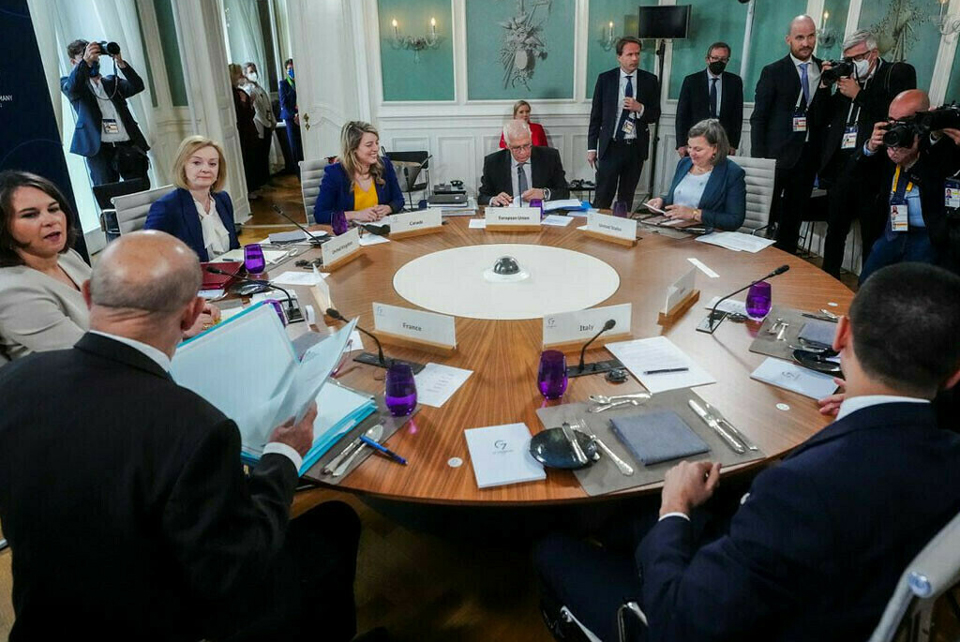
K(tm)NIGSWINTER, Germany, May 20, 2022 (BSS/AFP) - Germany said it would contribute one billion euros ($1.1 billion) to shore up the Ukrainian government's finances, as G7 ministers met Thursday to discuss further support for Kyiv in the face of the Russian invasion.
The G7 were coordinating "commitments to finance the government functions of the Ukraine", German Finance Minister Christian Lindner said at a press conference following the first day of the meeting in Germany.
Germany "will make one billion euros available to the Ukrainians in grants," Lindner said, in addition to a $7.5-billion pledge from the United States in the process of being approved by legislators.
Lindner said he expected "further steps forward" to be made before the end of the meeting on Friday.
The war has blown a hole in Ukraine's finances, with tax revenue having fallen sharply.
Kyiv needed a "double-digit billion euro" figure to keep essential services going, Lindner said earlier in the day ahead of the meeting in Koenigswinter, near Bonn.
- Financial support -
As it stands, the government in Kyiv estimates that the war has left it with a budget shortfall of around $5 billion a month.
"The bilateral and multilateral support announced so far will not be sufficient to address Ukraine's needs, even in the short term," US Treasury Secretary Janet Yellen said in a speech in Brussels on Tuesday.
The United States has forged ahead with a $40-billion (38-billion-euro) aid package to fill Kyiv's coffers and military stores.
Around $7.5 billion of the US package is earmarked to help plug the hole in Ukraine's government budget caused by the war.
On Thursday, the British government said in a statement it would also contribute o50 million (59 million euros) "to help ensure the continued provision of electricity" to Ukrainians via the European development bank.
Ahead of the G7 meeting, the European Union also proposed to boost its aid to Ukraine by up to nine billion euros.
Besides Germany, the other members of the G7 group are Canada, France, Italy, Japan, Britain and the United States.
- Rising prices -
Beyond the borders of the Ukraine, the war has triggered a sharp rise in energy prices, raw materials and agricultural goods.
The US Federal Reserve's decision to raise interest rates aggressively in response to high inflation has created concerns that the central bank could step on the brakes too hard, hurting growth.
Yellen said Wednesday she did not "expect" a recession in the United States, but warned of the risks for Europe.
The continent, which has also been battling decades-high inflation, was "more vulnerable and of course more exposed on the energy front" as prices rise following the Russian invasion of Ukraine, she said.
Europe's reliance on Russian energy imports for much of its needs means further disruptions to supply could come at a heavy cost for industry.
Shortages of raw materials and agricultural products caused by the conflict also threatened to heap extra pressure on consumers.
The rise in energy and food prices was being felt particularly hard in developing nations, Lindner said, just as rising dollar interest rates made their debts harder to finance.
The combined pressures could quickly lead to a "critical situation", the G7 host added, calling on China, one of the world's biggest creditors, to be more transparent about its lending.